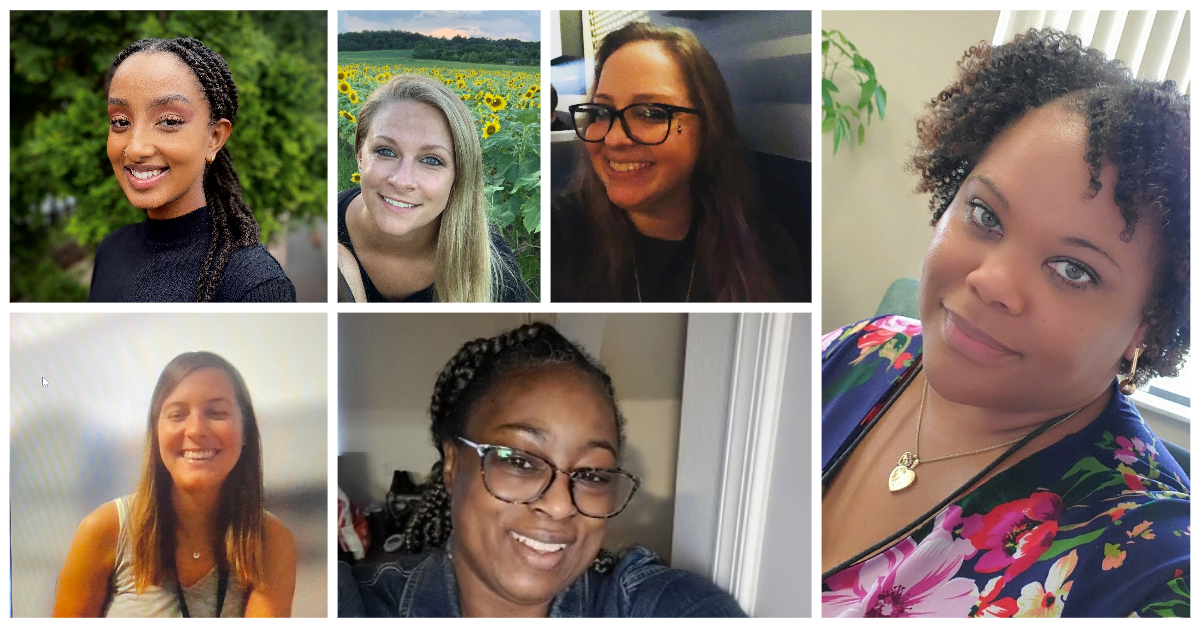(Posted 2023 November)
In April 2022, four siblings; Donald-13 Diane-12, Danielle-11, and Doreen-9* entered foster care due to a significant incident of family violence which resulted in the arrest of their mother, Trudy*. This was a family with whom the Department of Family Services’ Protection and Preservation Services program had intervened before.
The Children Struggle to Adapt
 At this point, the DFS specialist assigned to the case contacted several family members to try to coordinate a home with an aunt or their grandmother, but neither relative felt equipped to handle the care of four siblings. Their mother and father had a strained relationship, which meant he had had been out of contact with the children for over a year.
At this point, the DFS specialist assigned to the case contacted several family members to try to coordinate a home with an aunt or their grandmother, but neither relative felt equipped to handle the care of four siblings. Their mother and father had a strained relationship, which meant he had had been out of contact with the children for over a year.
David* couldn’t accommodate housing four children on short notice, and he didn’t have any family members who could support his children. He was excited to be a part of their lives again. He began visiting with his children while the department assessed his stability and willingness to support the needs of his children so that they could return home with him.
There were no foster homes available to take all four children, so Foster Care and Adoption staff found a separate placement for Donald while his sisters, Diane, Danielle, and Doreen, were placed together in a therapeutic foster home. It was clear from the start that long-standing trauma had led to emotional and behavioral concerns in each child. Assessments of the children confirmed that they each needed individual therapy to include some sibling sessions and eventually sessions with their parents.
The foster parents and DFS specialists quickly became concerned about the dynamics within the siblings’ relationships and their poor communication. Diane and Danielle were often caught being mean to their youngest sister and calling her names. Donald used foul language toward his sisters and instigated fights. The girls refused to follow directions in the home. Donald struggled to hold himself together in a classroom setting and he spent more time in the counselor’s office than in class.
A Disappointing Turn
David started visiting his children weekly and was often a support to the foster families when his children were misbehaving. He was available to help calm them down and get them to follow through with household expectations. Donald was wary of David because of his absence from their lives over the past year. He didn’t trust David or Trudy to protect him or make him and his siblings a priority in their lives.
By July of 2022, Donald’s beliefs proved true. David had started making threats to his children, the department, and service providers. He didn’t want to participate in any of the court ordered services since the children were in care due to their mother’s behaviors, not his. He just wanted his children returned home to him or Trudy. David struggled to understand how his tumultuous relationship with Trudy affected his children and their ability to feel safe around him.
 David walked away that same month. He disengaged with his children and all services creating another layer of disappointment for his children. The department remained hopeful that a successful reconnection with their father would be possible and that in time, David could be the primary caregiver for Donald, Diane, Danielle, and Doreen.
David walked away that same month. He disengaged with his children and all services creating another layer of disappointment for his children. The department remained hopeful that a successful reconnection with their father would be possible and that in time, David could be the primary caregiver for Donald, Diane, Danielle, and Doreen.
An Unexpected Breakthrough
With Trudy detained until August of 2022, it was difficult to assess any progress in her ability to care for her children. The greatest concern was her emotional outbursts when she felt overwhelmed by her children’s behaviors. She was more concerned about making sure her children were okay in foster care than getting the help that she needed.
Throughout this time, Trudy and the DFS specialist had many calls and visits to address the needs of the family. But she was unwilling to acknowledge her role in the children feeling unsafe and how that linked to their behaviors in the foster home and at school. She had weekly phone conversations with her children, but the limitations at the detention facility prevented them from having in-person visits.
 Eventually, Trudy acknowledged having unmet mental health needs and angry outbursts that could turn violent. This was a major step for Trudy. She recognized that her children needed to process their grief and trauma and learn healthy forms of communication. The DFS specialist advocated for her to speak up during her children’s IEPs, treatment team, and family partnership meetings, and to be honest about her feelings. This greatly empowered Trudy to then start engaging in her own therapy to address her mental health, substance use and history of trauma.
Eventually, Trudy acknowledged having unmet mental health needs and angry outbursts that could turn violent. This was a major step for Trudy. She recognized that her children needed to process their grief and trauma and learn healthy forms of communication. The DFS specialist advocated for her to speak up during her children’s IEPs, treatment team, and family partnership meetings, and to be honest about her feelings. This greatly empowered Trudy to then start engaging in her own therapy to address her mental health, substance use and history of trauma.
She began having productive conversations with her DFS specialist and asserting herself in a positive way during her time with her children. Trudy had not believed that she would ever have a chance at having her children returned to her and was surprised by the efforts by the DFS specialist to support her voice being heard, respected, and encouraged.
When Doreen’s behaviors escalated to the point of needing hospitalization and a placement change out of state, Trudy was most concerned about Doreen feeling like she was not a part of the family and missing that in person support. So, Trudy made every effort to participate in all of Doreen’s therapeutic services including attending family sessions, flying out to see Doreen, and being Doreen’s voice during treatment team meetings. Doreen was able to see her mother being present for her.
Trudy was enrolled in a one-on-one parenting class, anger management, and individual therapy. As she started to understand her children’s developmental levels her ability to engage with her children in a meaningful manner increased. In therapy, she connected her own trauma with her responses to her children and the avoidance of implementing structure and routine.
As Trudy continued to work on her mental health, the DFS specialist observed her calm responses to Donald’s school challenges, her thoughtful manner in addressing Danielle’s attitude in her foster home, and her responsiveness to Doreen’s unsafe behaviors. Trudy was parenting her children again from afar and being consistent.
Hard Work and Honest Reflection Pay Off
 By February of 2023, Trudy’s therapist felt it was time to discharge her and wrote a glowing summary of the progress Trudy had made during their time together. Trudy had demonstrated over time to her therapist and DFS that she was willing to make the necessary changes to her parenting and address her mental health so that she could be present for her children.
By February of 2023, Trudy’s therapist felt it was time to discharge her and wrote a glowing summary of the progress Trudy had made during their time together. Trudy had demonstrated over time to her therapist and DFS that she was willing to make the necessary changes to her parenting and address her mental health so that she could be present for her children.
The department asked Trudy if she was ready to start working on a transition plan to have her children returned home and Trudy was simply stunned. She still doubted herself and was shocked that DFS supported their return home. Happy about this possibility, Trudy and the specialist discussed Trudy’s concerns about being able to manage all four of her children again. Together they strategized how she would manage her frustration and use her support system for help.
The same DFS specialist who supported the family’s supervised visits became their in-home worker and helped Trudy navigate back into full time parenting of her children.
Three short months later, Trudy’s three older children left foster care and came home to be with her. The youngest, Doreen, completed her treatment in a residential facility and returned home a month later. Trudy regained custody of all four children in June 2023.
Trudy was beyond excited to have all her children back home. Her hard work had paid off. She stuck it out once she realized that taking care of her own needs would greatly benefit her children and make a lasting impact. The future looks bright for this family that has managed to overcome so much.
*Names changed to protect confidentiality
This article is provided by Penny Talley, supervisor Annandale Foster Care Unit

This article posting is part of the Foster Family News monthly newsletter designed to keep foster parents informed about all the new and notable happenings in Fairfax County.
Learn about what the Foster Care and Adoption program has planned for foster families - stay on top of trends, participate in trainings and learn about policy changes.


